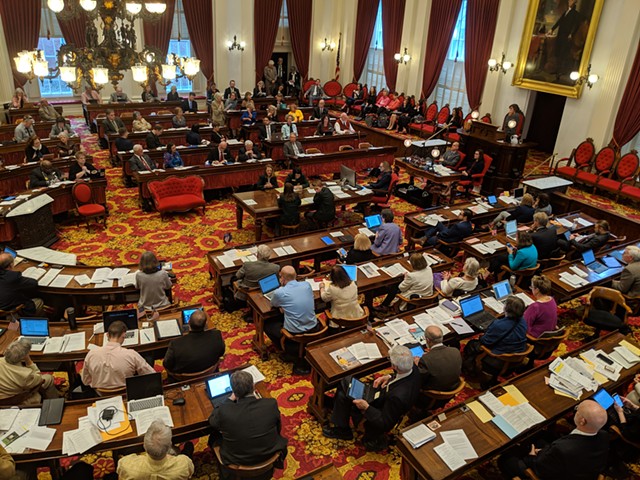
- File: Taylor Dobbs
- The Vermont House of Representatives
Vermont lawmakers are considering sweeping changes to open meeting and election laws to allow public officials to vote by phone and lift the requirement for candidates to gather signatures from voters.
The proposals are meant to give state and local governments the flexibility to operate differently during the public health crisis, but they also raise questions about public access and oversight.
A draft bill discussed Wednesday sparked disagreement about whether Gov. Phil Scott has the authority make the changes by executive order. Some contend legislative approval would be required.
“Our legislative counsel said the governor does not have that ability,” Sen. Jeanette White (D-Windham) said.
Karen Horn, public policy director with the Vermont League of Cities and Towns, thinks otherwise. Horn’s organization proposed changes to open meeting laws that she says are needed to enable decision making at the local level.
“I think the governor probably does have authority to do this under emergency powers, which are very broad,” Horn said.
The proposed changes are, while temporary, numerous and far-reaching. Town selectboards and other public bodies would be able to conduct meetings and make decisions from remote locations by conference call or video conferencing.
Currently, all members of a public body covered by the law — not including the legislature — can participate remotely by conference call, but the public must be able to attend in person and listen to the call. The bill would suspend the provision for a physical location.
Secretary of State Jim Condos proposed requiring that such calls be recorded to protect the public’s right to know what took place, but senators dismissed the idea as unrealistic. They noted meeting minutes would still be required to be posted within 10 days.
Multiple changes to election law would include requiring that mail-in ballots be sent to every voter in the state, allowing voters to drive-up to deliver their ballots, extending voting hours and allowing towns to switch to Australian ballot instead of floor voting still common in Vermont.
The suspension of the signature-gathering requirement is something that struck some lawmakers as a common-sense measure. Currently, candidates need 500 signatures to qualify for the ballot for federal seats, 100 for state Senate seats and 50 for House seats.
“I’m not sure if we would be very popular if we were walking around with a clipboard getting people to sign,” White said.
The measures struck many lawmakers as reasonable given the crisis, though some seemed concerned about overreach. Sen. Alison Clarkson (D-Windsor) was uncomfortable extending the election law changes through 2020 regardless of whether a state of emergency remained in place.
“This is big and broad authority, and I would like to have it qualified by a declared emergency,” Clarkson said.
Will Senning, state director of elections, stressed that the changes would only be used if necessary to respond to a continuing crisis.
“I would love to change nothing between now and November,” Senning said. “This gives us the ability to react in real time.”







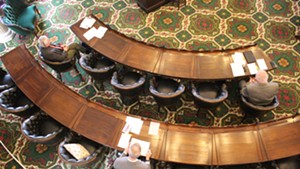

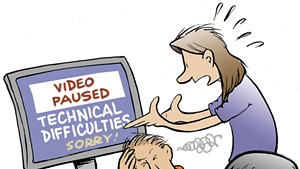
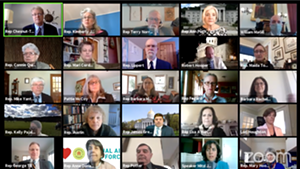
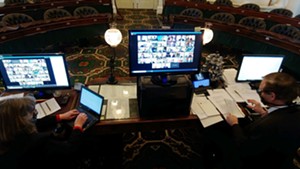




Comments
Comments are closed.
From 2014-2020, Seven Days allowed readers to comment on all stories posted on our website. While we've appreciated the suggestions and insights, right now Seven Days is prioritizing our core mission — producing high-quality, responsible local journalism — over moderating online debates between readers.
To criticize, correct or praise our reporting, please send us a letter to the editor or send us a tip. We’ll check it out and report the results.
Online comments may return when we have better tech tools for managing them. Thanks for reading.